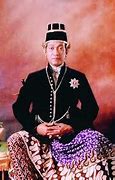
Perbandingan Gaji Berdasarkan Pendidikan
Water supply and sanitation
Access to improved water supply and sanitation in the UK is universal. It is estimated that 96 per cent of households are connected to the sewer network.[335] According to the Environment Agency, total water abstraction for public water supply in the UK was 16,406 megalitres per day in 2007.[336]
In England and Wales water and sewerage services are provided by 10 private regional water and sewerage companies and 13 mostly smaller private "water only" companies. In Scotland, water and sewerage services are provided by a single public company, Scottish Water. In Northern Ireland water and sewerage services are also provided by a single public entity, Northern Ireland Water.[337]
In the 2011 census, the total population of the United Kingdom was 63,181,775.[338] It is the fourth-largest in Europe (after Russia, Germany and France), the fifth-largest in the Commonwealth and the 22nd-largest in the world. In mid-2014 and mid-2015, net long-term international migration contributed more to population growth. In mid-2012 and mid-2013, natural change contributed the most to population growth.[339] Between 2001 and 2011, the population increased by an average annual rate of approximately 0.7 per cent.[338] The 2011 census also showed that, over the previous 100 years, the proportion of the population aged 0–14 fell from 31 per cent to 18 per cent, and the proportion of people aged 65 and over rose from 5 to 16 per cent.[338] In 2018, the median age of the UK population was 41.7 years.[340]
England's population in 2011 was 53 million, representing some 84 per cent of the UK total.[342] It is one of the most densely populated countries in the world, with 420 people per square kilometre in mid-2015,[339] with a particular concentration in London and the south-east.[343] London's wider metropolitan area is the largest in Western Europe, with a population of 14.9 million in 2024.[344] The 2011 census put Scotland's population at 5.3 million,[345] Wales at 3.06 million and Northern Ireland at 1.81 million.[342]
In 2017, the total fertility rate across the UK was 1.74 children born per woman.[346] While a rising birth rate is contributing to population growth, it remains considerably below the baby boom peak of 2.95 children per woman in 1964,[347] or the high of 6.02 children born per woman in 1815,[348] below the replacement rate of 2.1, but higher than the 2001 record low of 1.63.[349] In 2011, 47.3 per cent of births in the UK were to unmarried women.[350] The Office for National Statistics reported in 2015 that out of the UK population aged 16 and over, 1.7 per cent identify as gay, lesbian, or bisexual (2.0 per cent of males and 1.5 per cent of females); 4.5 per cent of respondents responded with "other", "I don't know", or did not respond.[351] The number of transgender people in the UK was estimated to be between 65,000 and 300,000 by research between 2001 and 2008.[352]
(England and Wales: 2011 census built-up area;
Scotland: 2016 estimates settlement;
Northern Ireland: 2001 census urban area)
Historically, indigenous British people were thought to be descended from the various ethnic groups that settled there before the 12th century: the Celts, Romans, Anglo-Saxons, Norse and the Normans. Welsh people could be the oldest ethnic group in the UK.[356] The UK has a history of non-white immigration with Liverpool having the oldest Black population in the country, dating back to at least the 1730s during the period of the African slave trade. During this period, it is estimated the Afro-Caribbean population of Great Britain was 10,000 to 15,000[357] which later declined due to the abolition of slavery.[358] The UK also has the oldest Chinese community in Europe, dating to the arrival of Chinese seamen in the 19th century.[359] In 2011[update], 87.2 per cent of the UK population identified themselves as white, meaning 12.8 per cent of the UK population identify themselves as of one of an ethnic minority group.[360]
Ethnic diversity varies significantly across the UK. 30.4 per cent of London's population and 37.4 per cent of Leicester's was estimated to be non-white in 2005[update],[364] whereas less than 5 per cent of the populations of North East England, Wales and the South West were from ethnic minorities, according to the 2001 census.[365] In 2016[update], 31.4 per cent of primary and 27.9 per cent of secondary pupils at state schools in England were members of an ethnic minority.[366]
The English language is the official and most spoken language of the United Kingdom.[367][368] The United Kingdom proactively promotes the language globally to build connections, understanding and trust between people in the UK and countries worldwide.[369][370] It is estimated that 95 per cent of the UK's population are monolingual English speakers.[371] Over 5.5 per cent of the population are estimated to speak languages brought to the UK as a result of relatively recent[when?] immigration.[371] South Asian languages are the largest grouping which includes Punjabi, Urdu, Bengali, Sylheti, Hindi, Pahari-Pothwari, Tamil, and Gujarati.[372] According to the 2011 census, Polish has become the second-largest language spoken in England and has 546,000 speakers.[373] In 2019, some three-quarters of a million people spoke little or no English.[374]
Three indigenous Celtic languages are spoken in the UK: Welsh, Irish and Scottish Gaelic. Cornish, which became extinct as a first language in the late 18th century, is subject to revival efforts and has a small group of second language speakers.[375][2] According to the 2021 census, the Welsh-speaking population of Wales aged three or older was 538,300 people (17.8 per cent).[376] In addition, it is estimated that about 200,000 Welsh speakers live in England.[377] In the 2021 census in Northern Ireland 12.4% of people had some ability in the Irish language and 10.4% of people had some ability in the Ulster-Scots language.[378] Over 92,000 people in Scotland (just under 2 per cent of the population) had some Gaelic language ability, including 72 per cent of those living in the Outer Hebrides.[379] The number of children being taught either Welsh or Scottish Gaelic is increasing.[380] Scots, a language descended from early northern Middle English, has limited recognition alongside its regional variant, Ulster Scots in Northern Ireland, without specific commitments to protection and promotion.[2][381] As of April 2020, there are said to be around 151,000 users of British Sign Language (BSL), a sign language used by deaf people, in the UK.[382]
Religion in the United Kingdom (2022 census)[383]
Christianity (46.53%)
Other religion (0.58%)
Forms of Christianity have dominated religious life in what is now the United Kingdom for more than 1,400 years.[384] Although a majority of citizens still identify with Christianity in many surveys, regular church attendance has fallen dramatically since the middle of the 20th century,[385] while immigration and demographic change have contributed to the growth of other faiths, most notably Islam.[386] This has led some commentators to variously describe the UK as a multi-faith,[387] secularised,[388] or post-Christian society.[389]
In the 2001 census, 71.6 per cent of all respondents indicated that they were Christians, with the next largest faiths being Islam (2.8 per cent), Hinduism (1.0 per cent), Sikhism (0.6 per cent), Judaism (0.5 per cent), Buddhism (0.3 per cent) and all other religions (0.3 per cent).[390] Of the respondents, 15 per cent stated that they had no religion and a further 7 per cent did not state a religious preference.[391] A Tearfund survey in 2007 showed that only one in ten Britons actually attend church weekly.[392] Between the 2001 and 2011 census, there was a 12 per cent decrease in the number of people who identified as Christian, while the percentage of those reporting no religious affiliation doubled. This contrasted with growth in the other main religious group categories, with the number of Muslims increasing by the most substantial margin to a total of about 5 per cent.[393] The Muslim population has increased from 1.6 million in 2001 to 2.7 million in 2011, making it the second-largest religious group in the UK.[394]
The Church of England is the established church in England.[395] It retains a representation in the UK Parliament, and the British monarch is its Supreme Governor.[396] In Scotland, the Church of Scotland is recognised as the national church. It is not subject to state control, and the British monarch is an ordinary member, required to swear an oath to "maintain and preserve the Protestant Religion and Presbyterian Church Government" upon his or her accession.[397][2][398] The Church in Wales was disestablished in 1920 and, because the Church of Ireland was disestablished in 1870 before the partition of Ireland, there is no established church in Northern Ireland.[399] Although there are no UK-wide data in the 2001 census on adherence to individual Christian denominations, it has been estimated that 62 per cent of Christians are Anglican, 13.5 per cent Catholic, 6 per cent Presbyterian, and 3.4 per cent Methodist, with small numbers of other Protestant denominations.[400]
Immigration is now[when?] contributing to a rising UK population,[401][402] with arrivals and UK-born children of migrants accounting for about half of the population increase between 1991 and 2001. According to official statistics released in 2015, 27 per cent of UK live births in 2014 were to mothers born outside the UK.[403] The ONS reported that net migration rose from 2009 to 2010 by 21 per cent to 239,000.[404]
In 2013, approximately 208,000 foreign nationals were naturalised as British citizens, the highest number since 1962. This figure fell to around 125,800 in 2014. Between 2009 and 2013, the average number of British citizenships granted annually was 195,800. The most common previous nationalities of those naturalised in 2014 were Indian, Pakistani, Filipino, Nigerian, Bangladeshi, Nepali, Chinese, South African, Polish and Somali.[405] The total number of grants of settlement, which confer permanent residence in the UK but not citizenship,[406] was approximately 154,700 in 2013, higher than the previous two years.[405] Long-term net migration (the number of people immigrating minus the number emigrating) reached a record high of 764,000 in 2022, with immigration at 1.26 million and emigration at 493,000.[407] In 2023, net migration was 685,000; 10% of the total who came to the UK in that year were EU Nationals.[402] More EU Nationals left the UK than arrived.[402]
Emigration was an important feature of British society in the 19th century. Between 1815 and 1930, around 11.4 million people emigrated from Britain and 7.3 million from Ireland. Estimates show that by the end of the 20th century, some 300 million people of British and Irish descent were permanently settled around the globe.[408] Today,[when?] at least 5.5 million UK-born people live abroad,[409][410] mainly in Australia, Spain, the United States and Canada.[409][411]
Education in the United Kingdom is a devolved matter, with each country having a separate education system. About 38 per cent of the United Kingdom population has a university or college degree, which is the highest percentage in Europe, and among the highest percentages in the world.[412] The United Kingdom is home to many universities, including the University of Oxford and University of Cambridge which often achieve first place on global rankings.[413][414]
University education has varied tuition fees between the different regions of the UK. England and Wales have a fixed maximum annual fee for all UK citizens, contingent on attaining a certain level of income. Only those who reach a certain salary threshold (£21,000) pay this fee through general taxation. Northern Ireland and Scotland have a reduced maximum fee or no fee for citizens where it is their home region. Some NHS courses have bursaries which pay the fee and in 2017 it was stated that each doctor gets subsidised by £230,000 during their training.[415][416]
In 2022, the Programme for International Student Assessment (PISA), coordinated by the OECD, ranked the overall knowledge and skills of British 15-year-olds as 14th in the world in reading, mathematics and science. The average British student scored 494, well above the OECD average of 478.[417][418]
The modern system of universal publicly funded healthcare in the United Kingdom has its origins in the creation of the National Health Service (NHS) in 1949 which still exists to this day and is the primary healthcare provider in the United Kingdom. The widespread popularity of the NHS has led to it being described as a "national religion".[419][420] Healthcare in the United Kingdom is a devolved matter and each country has its own system of universal publicly funded healthcare, although private healthcare is also available. Public healthcare is provided to all UK permanent residents and is mostly free at the point of need, being paid for from general taxation. The World Health Organization, in 2000, ranked the provision of healthcare in the United Kingdom as fifteenth best in Europe and eighteenth in the world.[421]
Since 1979, expenditure on healthcare has been increased significantly.[422] The 2018 OECD data, which incorporates in health a chunk of what in the UK is classified as social care, has the UK spending £3,121 per head.[423] In 2017, the UK spent £2,989 per person on healthcare, around the median for members of the Organisation for Economic Co-operation and Development.[424]
Regulatory bodies are organised on a UK-wide basis such as the General Medical Council, the Nursing and Midwifery Council and non-governmental-based, such as the Royal Colleges. Political and operational responsibility for healthcare lies with four national executives; healthcare in England is the responsibility of the UK Government; healthcare in Northern Ireland is the responsibility of the Northern Ireland Executive; healthcare in Scotland is the responsibility of the Scottish Government; and healthcare in Wales is the responsibility of the Welsh Government. Each National Health Service has different policies and priorities, resulting in contrasts.[425]
The culture of the United Kingdom is influenced by many factors including: the nation's island status; its history; and being a political union of four countries with each preserving elements of distinctive traditions, customs and symbolism. As a result of the British Empire, British influence can be observed in the language, culture and legal systems of many of its former colonies, in particular, the United States, Australia, Canada, New Zealand, and Ireland, a common culture known today as the Anglosphere.[426] The substantial cultural influence of the United Kingdom has led to it being described as a cultural superpower.[108][109] A global survey in 2023 ranked the UK 3rd in the 'Most Influential Countries' rankings (behind the US and China).[428]
British literature includes literature associated with the United Kingdom, the Isle of Man and the Channel Islands. Most British literature is in English. In 2022, 669 million physical books were sold in the UK, this is the highest overall level ever recorded.[429] Britain is renowned for children's literature, writers includes Daniel Defoe, Rudyard Kipling, Lewis Carroll and Beatrix Potter who also illustrated her own books. Other writers include A.A. Milne, Enid Blyton, J.R.R. Tolkien, Roald Dahl, Terry Pratchett and J.K. Rowling who wrote the best selling book series of all time.[430]
The English playwright and poet William Shakespeare is widely regarded as the greatest dramatist of all time.[431] Other important English writers include Geoffrey Chaucer, known for The Canterbury Tales, the poet William Wordsworth and other romantic poets, also the novelists Charles Dickens, H. G. Wells, George Orwell and Ian Fleming. The 20th-century English crime writer Agatha Christie is the best-selling novelist of all time.[432] Twelve of the top 25 of 100 novels by British writers chosen by a BBC poll of global critics were written by women; these included works by George Eliot, Virginia Woolf, Charlotte, Emily Brontë, Mary Shelley, Jane Austen, Doris Lessing and Zadie Smith.[433]
Scotland's contributions include Arthur Conan Doyle (the creator of Sherlock Holmes), Sir Walter Scott, J. M. Barrie, Robert Louis Stevenson and the poet Robert Burns. More recently Hugh MacDiarmid and Neil M. Gunn contributed to the Scottish Renaissance, with grimmer works from Ian Rankin and Iain Banks. Scotland's capital, Edinburgh, was UNESCO's first worldwide City of Literature.[434]
Welsh literature includes Britain's oldest known poem, Y Gododdin, which was composed most likely in the late 6th century. It was written in Cumbric or Old Welsh and contains the earliest known reference to King Arthur.[435] The Arthurian legend was further developed by Geoffrey of Monmouth.[436] Poet Dafydd ap Gwilym (fl. 1320–1370) is regarded as one of the greatest European poets of his age.[437] Daniel Owen is credited as the first Welsh-language novelist, publishing Rhys Lewis in 1885. The best-known of the Anglo-Welsh poets are Dylan Thomas and R. S. Thomas, the latter nominated for the Nobel Prize in Literature in 1996. Leading Welsh novelists of the twentieth century include Richard Llewellyn and Kate Roberts.[438][439]
Northern Ireland's most popular writer is C. S. Lewis who was born in Belfast and wrote The Chronicles of Narnia.[440] Irish writers, living at a time when all of Ireland was part of the United Kingdom, include Oscar Wilde,[441] Bram Stoker[442] and George Bernard Shaw.[443] There have been many authors whose origins were from outside the United Kingdom but who moved to the UK, including Joseph Conrad,[444] T. S. Eliot,[445] Kazuo Ishiguro,[446] Sir Salman Rushdie[447] and Ezra Pound.[448]
The United Kingdom is famous for the tradition of 'British Empiricism', a branch of the philosophy of knowledge that states that only knowledge verified by experience is valid, and 'Scottish Philosophy', sometimes referred to as the 'Scottish School of Common Sense'.[449] The most famous philosophers of British Empiricism are John Locke, George Berkeley[y] and David Hume; while Dugald Stewart, Thomas Reid and William Hamilton were major exponents of the Scottish "common sense" school. Two Britons are also notable for the ethical theory of utilitarianism, a moral philosophy first used by Jeremy Bentham and later by John Stuart Mill in his short work Utilitarianism.[450]
Various styles of music have become popular in the UK, including the indigenous folk music of England, Wales, Scotland and Northern Ireland. Historically, there has been exceptional Renaissance music from the Tudor period, with masses, madrigals and lute music by Thomas Tallis, John Taverner, William Byrd, Orlando Gibbons and John Dowland. After the Stuart Restoration, an English tradition of dramatic masques, anthems and airs became established, led by Henry Purcell, followed by Thomas Arne and others. The German-born composer George Frideric Handel became a naturalised British citizen in 1727, when he composed the anthem Zadok the Priest for the coronation of George II; it became the traditional ceremonial music for anointing all future monarchs. Handel's many oratorios, such as his famous Messiah, were written in the English language.[451] In the second half of the 19th century, as Arthur Sullivan and his librettist W. S. Gilbert wrote their popular Savoy operas, Edward Elgar's wide range of music rivalled that of his contemporaries on the continent. Increasingly, however, composers became inspired by the English countryside and its folk music, notably Gustav Holst, Ralph Vaughan Williams, and Benjamin Britten, a pioneer of modern British opera. Among the many post-war composers, some of the most notable have made their own personal choice of musical identity: Peter Maxwell Davies (Orkney), Harrison Birtwistle (mythological), and John Tavener (religious).[452] Today, recent classical singers include: Alfie Boe, Bryn Terfel, Katherine Jenkins, Michael Ball, Roderick Williams, Russell Watson and Sarah Brightman, while Nicola Benedetti and Nigel Kennedy are renowned for their violin ability.[453]
According to The New Grove Dictionary of Music and Musicians, the term "pop music" originated in Britain in the mid-1950s to describe rock and roll's fusion with the "new youth music".[454] The Oxford Dictionary of Music states that artists such as the Beatles and the Rolling Stones drove pop music to the forefront of popular music in the early 1960s.[455] Birmingham became known as the birthplace of heavy metal, with the band Black Sabbath starting there in the 1960s.[456] In the following years, Britain widely occupied a part in the development of rock music, with British acts pioneering hard rock;[457] raga rock; heavy metal;[458] space rock; glam rock;[459] Gothic rock,[460] psychedelic rock,[461] and punk rock.[462] British acts also developed neo soul and created dubstep.[463] The modern UK is known to produce some of the most prominent English-speaking rappers along with the United States, including Stormzy, Kano, Yxng Bane, Ramz, Little Simz and Skepta.[464]
The Beatles have international sales of over 1 billion units and are the biggest-selling and most influential band in the history of popular music.[465][466][467][468] Other prominent British contributors to have influenced popular music over the last 50 years include the Rolling Stones, Pink Floyd, Queen, Led Zeppelin, the Bee Gees, and Elton John, all of whom have worldwide record sales of 200 million or more.[469] The Brit Awards are the BPI's annual music awards, and some of the British recipients of the Outstanding Contribution to Music award include the Who, David Bowie, Eric Clapton, Rod Stewart, the Police, and Fleetwood Mac (who are a British-American band).[470] More recent UK music acts that have had international success include George Michael, Oasis, Spice Girls, Radiohead, Coldplay, Arctic Monkeys, Robbie Williams, Amy Winehouse, Susan Boyle, Adele, Ed Sheeran, Lewis Capaldi, One Direction, Harry Styles and Dua Lipa.[471]
A number of UK cities are known for their music. Acts from Liverpool have had 54 UK chart number 1 hit singles, more per capita than any other city worldwide.[472] Glasgow's contribution to music was recognised in 2008 when it was named a UNESCO City of Music.[473] Manchester played a role in the spread of dance music such as acid house, and from the mid-1990s, Britpop. London and Bristol are closely associated with the origins of electronic music sub-genres such as drum and bass and trip hop.[474]
UK dance music traces its roots back to the Black British Sound System Culture and the New Age Traveller movement of the 60s and 70s,[475] it also has influences from New Wave and Synth-pop such as from bands New Order and Depeche Mode[476] and also has influences from the Chicago House and Detroit Techno scenes. In the late 80's, dance music exploded with Rave culture mainly Acid House tracks which were made mainstream with novelty records (such as Smart E's Sesame's Treet and the Prodigy's Charly)[477] and the Balearic sound brought back from the Ibiza club scene. This led on to genres such as UK Garage, Speed Garage, Drum and bass, Jungle, Trance and Dubstep. Influential UK dance acts past and present include 808 State, Orbital, the Prodigy, Underworld, Roni Size, Leftfield, Massive Attack, Groove Armada, Fatboy Slim, Faithless, Basement Jaxx, Chemical Brothers, Sub Focus, Chase & Status, Disclosure, Calvin Harris and Fred Again.[478] Other influential UK DJs include Judge Jules, Pete Tong, Carl Cox, Paul Oakenfold, John Digweed and Sasha.[479]
Major British artists include: the Romantics William Blake, John Constable, Samuel Palmer and J. M. W. Turner; the portrait painters Sir Joshua Reynolds and Lucian Freud; the landscape artists Thomas Gainsborough and L. S. Lowry; the pioneer of the Arts and Crafts Movement William Morris; the figurative painter Francis Bacon; the Pop artists Peter Blake, Richard Hamilton and David Hockney; the pioneers of Conceptual art movement Art & Language;[480] the collaborative duo Gilbert and George; the abstract artist Howard Hodgkin; and the sculptors Antony Gormley, Anish Kapoor and Henry Moore. During the late 1980s and 1990s the Saatchi Gallery in London helped to bring to public attention a group of multi-genre artists who would become known as the "Young British Artists": Damien Hirst, Chris Ofili, Rachel Whiteread, Tracey Emin, Mark Wallinger, Steve McQueen, Sam Taylor-Wood and the Chapman Brothers are among the better-known members of this loosely affiliated movement.
The Royal Academy in London is a key organisation for the promotion of the visual arts in the United Kingdom. Major schools of art in the UK include: the six-school University of the Arts London, which includes the Central Saint Martins College of Art and Design and Chelsea College of Art and Design; Goldsmiths, University of London; the Slade School of Fine Art (part of University College London); the Glasgow School of Art; the Royal College of Art; and The Ruskin School of Drawing and Fine Art (part of the University of Oxford). The Courtauld Institute of Art is a leading centre for the teaching of the history of art. Important art galleries in the United Kingdom include the National Gallery, National Portrait Gallery, Tate Britain and Tate Modern (the most-visited modern art gallery in the world, with around 4.7 million visitors per year).[481]
The United Kingdom has had a considerable influence on the history of the cinema. The British directors Alfred Hitchcock, whose film Vertigo is considered by some critics as the best film of all time,[482] and David Lean who directed Lawrence of Arabia are among the most critically acclaimed directors of all time.[483] Recent popular directors include: Christopher Nolan, Sam Mendes, Steve McQueen, Richard Curtis, Danny Boyle, Tony Scott and Ridley Scott.[484][485][486][487] Many British actors have achieved international fame and critical success. Some of the most commercially successful films of all time have been produced in the United Kingdom, including two of the highest-grossing film franchises (Harry Potter and James Bond).[488]
2019 was a particularly good year for British films which grossed around £10.3 billion globally which was 28.7% of global box office revenue.[489] UK box-office takings totalled £1.25 billion in 2019, with around 176 million admissions.[490] In 2023 UK film and television studio stage space stands at 6.9 million sq ft, with 1 million sq ft added in the past year with more in development.[491] The annual BAFTA Film Awards are hosted by the British Academy of Film and Television Arts.[492]
British cuisine developed from various influences reflective of its land, settlements, arrivals of new settlers and immigrants, trade and colonialism. The food of England has historically been characterised by its simplicity of approach and a reliance on the high quality of natural produce.[493] The traditional Sunday roast is one example, featuring a roasted joint, usually of beef, lamb, chicken or pork, often free range (and generally grass-fed, in the case of beef). Roasts are served with either roasted or boiled vegetables, Yorkshire pudding, and gravy. Other traditional meals include meat pies and various stews. A 2019 YouGov poll rated classic British food, the following had more than 80% of people like them who had tried them: Sunday roast, Yorkshire pudding, fish and chips, crumpets, and full English breakfast.[494]
The UK is home to a large selection of fine dining. In, 2024 there were 187 restaurants with a Michelin Star; 49 of them consider their cuisine to be 'Modern British'.[495] Sweet foods are common within British cuisine, and there is a long list of British desserts. Afternoon tea is a light afternoon meal served with tea in tea rooms and hotels around the United Kingdom, with the tradition dating back to around 1840.[496] A poll from July 2024 revealed that 3% of the UK population follows a vegan diet, 6% are vegetarian, and 13% identify as flexitarian (following a mainly vegetarian diet).[497] The British Empire facilitated a knowledge of Indian cuisine with its "strong, penetrating spices and herbs". British cuisine has absorbed the cultural influence of those who have settled in Britain, producing hybrid dishes, such as chicken tikka masala.[498] The British have embraced world cuisine and regularly eat recipes or fast food from other European countries, the Caribbean and Asia.
The UK has many gastropubs and is the birthplace of many alcoholic drinks including many beer styles such as pale ale, India pale ale, bitter, brown ale, porter and stout. The number of craft beers and microbreweries have expanded rapidly in the last 20 years.[499] Other popular alcoholic drinks produced in the UK include Scotch whisky, English wine, gin, perry and cider.
The BBC, founded in 1922, is the UK's publicly funded radio, television and Internet broadcasting corporation, and is the oldest and largest broadcaster in the world.[500][501][502] It operates numerous television and radio stations in the UK and abroad and its domestic services are funded by the television licence.[503] The BBC World Service is an international broadcaster owned and operated by the BBC. It is the world's largest of any kind.[504] It broadcasts radio news, speech and discussions in more than 40 languages.[505]
Other major players in the UK media include ITV, which operates 11 of the 15 regional television broadcasters that make up the ITV Network,[506] and Sky.[507] Newspapers produced in the United Kingdom include the Daily Mail, The Guardian, The Telegraph, The Times, and the Financial Times.[508] Magazines and journals published in the United Kingdom that have achieved worldwide circulation include The Spectator, The Economist, New Statesman, and Radio Times.
London dominates the media sector in the UK: national newspapers and television and radio are largely based there, although MediaCityUK in Manchester is also a significant national media centre. Edinburgh and Glasgow, and Cardiff, are important centres of newspaper and broadcasting production in Scotland and Wales, respectively.[509] The UK publishing sector, including books, directories and databases, journals, magazines and business media, newspapers and news agencies, has a combined turnover of around £20 billion and employs around 167,000 people.[510] In 2015, the UK published 2,710 book titles per million inhabitants, more than any other country, much of this being exported to other Anglophone countries.[511]
In 2010, 82.5 per cent of the UK population were Internet users, the highest proportion among the 20 countries with the largest total number of users in that year.[512] The British video game industry is the largest in Europe, and, since 2022, the UK has the largest video game market in Europe by sales, overtaking Germany.[513] It is the world's third-largest producer of video games after Japan and the United States.[514]
Association football, tennis, table tennis, badminton, rugby union, rugby league, rugby sevens, golf, boxing, netball, water polo, field hockey, billiards, darts, rowing, rounders and cricket originated or were substantially developed in the UK, with the rules and codes of many modern sports invented and codified in late 19th-century Victorian Britain.[z]
A 2003 poll found that football is the most popular sport in the UK.[517] England is recognised by FIFA as the birthplace of club football, and the Football Association is the oldest of its kind, with the rules of football first drafted in 1863 by Ebenezer Cobb Morley.[518] Each of the Home Nations (England, Scotland, Wales and Northern Ireland) has its own football association, national team and league system, and each is individually a governing member of the International Football Association Board alongside FIFA. The English top division, the Premier League, is the most watched football league in the world.[519] The first international football match was contested by England and Scotland on 30 November 1872.[520] England, Scotland, Wales and Northern Ireland usually compete as separate countries in international competitions.[521]
In 2003, rugby union was ranked the second most popular sport in the UK.[517] The sport was created in Rugby School, Warwickshire, and the first rugby international took place on 27 March 1871 between England and Scotland.[522][523] England, Scotland, Wales, Ireland, France and Italy compete in the Six Nations Championship, which is the premier international rugby union tournament in the northern hemisphere. Sports governing bodies in England, Scotland, Wales and Ireland organise and regulate the game separately.[524] Every four years, the Home Nations make a combined team known as the British and Irish Lions which tours Australia, New Zealand and South Africa.
The United Kingdom hosted the Summer Olympic Games in 1908, 1948 and 2012, with London acting as the host city on all three occasions. Birmingham hosted the 2022 Commonwealth Games, the seventh time a country of the United Kingdom hosted the Commonwealth Games (England, Scotland and Wales have each hosted the Commonwealth Games at least once).[525]
The flag of the United Kingdom is the Union Flag (also referred to as the Union Jack).[526] It was created in 1606 by the superimposition of the flag of England, representing Saint George, on the flag of Scotland, representing Saint Andrew, and was updated in 1801 with the addition of Saint Patrick's Flag.[527] Wales is not represented in the Union Flag, as Wales had been conquered and annexed to England prior to the formation of the United Kingdom. The possibility of redesigning the Union Flag to include representation of Wales was discussed in 2007.[528] The national anthem of the United Kingdom is "God Save the King", with "King" replaced with "Queen" in the lyrics whenever the monarch is a woman.
Britannia is a national personification of the United Kingdom, originating from Roman Britain.[529] Beside The Lion and the Unicorn and the dragon of heraldry, the bulldog is an iconic animal and commonly represented with the Union Flag.[530] A now rare personification is a character originating in the 18th century, John Bull.[531]
England, Wales, and Scotland each have their own national symbols, including their national flags. Northern Ireland also has symbols, many of which are shared with the Republic of Ireland.
Links to related articles
55°N 3°W / 55°N 3°W / 55; -3
Adventure continues at the Jurassic carnival with heart-pounding rides catapulting visitors into the cretaceous period.
Scintillating rides will see explorers soar through the skies on the Dream Swinger, drift around ancient landscapes on the Dodgems, and spin through time itself on the Storm.
Don’t forget to test your skills on iconic sideshow games like the Laughing Clowns, Rabbit Shooting Gallery, Fishing Pool, Pick-A-Box and Lucky Numbers.
Berapa gaji yang didapatkan Tenaga Kerja Indonesia dan Tenaga Kerja Asing yang bekerja di Negara United Kingdom?
Gaji Karyawan di United Kingdom paling rendah yaitu Rp 29.872.161 sampai gaji tingginya di Rp 525.725.852 per bulan, gaji upah di negara ini mungkin akan berbeda-beda setiap harinya karena konversi mata uang ke rupiah.
Tenaga kerja asing yang sudah bekerja di United Kingdom biasanya mendapatkan gaji rata-rata Rp 117.895.463 per bulannya.
Gaji Karyawan antara Rp 29.872.161 (rata-rata terendah) hingga Rp 525.725.852 (rata-rata tertinggi, gaji maksimum sebenarnya lebih tinggi).
Ini adalah gaji bulanan rata-rata termasuk perumahan, transportasi, dan tunjangan lainnya. Gaji bervariasi secara drastis antara berbagai karir Akuntansi dan Keuangan. Jika Anda tertarik dengan gaji untuk pekerjaan tertentu.
Lihat gaji di bawah untuk jabatan pekerjaan tertentu.
Data gaji disini akan dikonversi dari mata uang negara tersebut menjadi mata uang Indonesia/ IDR. Mata uang negara ini menggunakan: GBP (Pound Sterling Inggris).
Silahkan cek lebih lengkapnya dibawah mengenai Gaji Karyawan di United Kingdom pada artikel ini.
Data Gaji dan Upah di Negara United Kingdom
Berikut detail informasi Gaji Karyawan di Negara United Kingdom berdasarkan median/ nilai data tengah, gaji minimum, gaji maksimum dan rata-rata yang didapatkan beserta persentasinya.
Science and technology
England and Scotland were leading centres of the Scientific Revolution from the 17th century.[298] The United Kingdom led the Industrial Revolution from the 18th century, and has continued to produce scientists and engineers credited with important advances.[299] Major theorists from the 17th and 18th centuries include Isaac Newton, whose laws of motion and illumination of gravity have been seen as a keystone of modern science;[300] from the 19th century Charles Darwin, whose theory of evolution by natural selection was fundamental to the development of modern biology, and James Clerk Maxwell, who formulated classical electromagnetic theory; and more recently Stephen Hawking, who advanced major theories in the fields of cosmology, quantum gravity and the investigation of black holes.[301]
The Department for Science, Innovation and Technology (DSIT) is responsible for helping to encourage, develop and manage the UK's scientific, research, and technological outputs. Scientific research and development remains important in British universities, with many establishing science parks to facilitate production and co-operation with industry.[302] In 2022, the UK retained its number one spot for technology in Europe reaching a combined market value of $1 trillion. Cambridge was named the number one university in the world for producing successful technology founders.[303]
In 2024, the UK ranked 5th in the Global Innovation Index, a position determined by approximately 80 indicators encompassing the political environment, education, infrastructure, and knowledge creation, among others.[304][297] During 2022, the UK produced 6.3 per cent of the world's scientific research papers and had a 10.5 per cent share of scientific citations, the third highest in the world for both. The UK ranked 1st in the world for Field-Weighted Citation Impact.[305] Scientific journals produced in the UK include publications by the Royal Society, Nature, the British Medical Journal and The Lancet.[306]
A radial road network totals 29,145 miles (46,904 km) of main roads, 2,173 miles (3,497 km) of motorways and 213,750 miles (344,000 km) of paved roads.[136] The M25, encircling London, is the largest and busiest bypass in the world.[307] In 2022, there were a total of 40.8 million licensed vehicles in Great Britain.[308]
The UK has an extensive railway network of 10,072 miles (16,209 km). In Great Britain, the British Rail network was privatised between 1994 and 1997, followed by a rapid rise in passenger numbers. Great British Railways is a planned state-owned public body that will oversee rail transport in Great Britain. The UK was ranked eighth among national European rail systems in the 2017 European Railway Performance Index assessing intensity of use, quality of service and safety.[309]
The UK has a direct train between London and Paris which takes 2hrs 16mins[310] called the Eurostar, it travels through the Channel Tunnel under the English Channel, at 23.5 miles long it is the world's longest undersea tunnel.[311] There is also a car service through the tunnel to France called LeShuttle. The Elizabeth line, a rail link running between East and West London, was named in honour of Queen Elizabeth II in 2016 and opened in 2022. It was Europe's largest construction project at the time and is estimated to bring in £42 billion to the UK economy.[312][313] Another major infrastructure project is High Speed 2 (HS2), a new high speed railway currently under construction. It will link London with Birmingham, with the potential to extend further north and capable of speeds of up to 225 mph.[314][315]
In 2014, there were 5.2 billion bus journeys in the UK, 2.4 billion of which were in London.[316] The red double-decker bus has entered popular culture as an internationally recognised icon of England.[317] The London bus network is extensive, with over 6,800 scheduled services every weekday carrying about six million passengers on over 700 different routes making it one of the most extensive bus systems in the world and the largest in Europe.[318]
During 2023, UK airports handled a total of 272.8 million passengers.[319] In that period the three largest airports were London Heathrow Airport (79.1 million passengers), Gatwick Airport (40.9 million passengers) and Manchester Airport (28.1 million passengers).[319] London Heathrow Airport, located 15 miles (24 km) west of the capital, is the world's second busiest airport by international passenger traffic and has the most international passenger traffic of any airport in the world;[320] it is the hub for the UK flag carrier British Airways, as well as Virgin Atlantic.[321]
In 2021, the UK was the world's 14th-largest consumer of energy and the 22nd-largest producer.[322] The UK is home to many large energy companies, including two of the six major oil and gas companies – BP and Shell.[323]
The total of all renewable electricity sources provided 43% of the electricity generated in the UK in 2020.[324] Wind power production is the country's fastest-growing supply; in 2022, 26.8% of the UK's total electricity was generated by wind power.[325] The UK has the largest offshore wind farm in the world, which is located off the coast of Yorkshire.[326]
In 2023, the UK had 9 nuclear reactors normally generating about 15 per cent of the UK's electricity.[327] Unlike Germany and Japan, there are two reactors under construction and more planned.[328][329] In the late 1990s, nuclear power plants contributed around 25 per cent of the total annual electricity generation in the UK, but this has gradually declined as old plants have been shut down. The UK Government is investing in Small Modular Reactors, Advanced Modular Reactors and Nuclear Fusion Reators[330] research and development.
In 2021, the UK produced 935 thousand barrels per day (bbl/d) of oil (and other liquids) and consumed 1,258 thousand bbl/d.[322] Production is now[when?] in decline and the UK has been a net importer of oil since 2005.[331] In 2020[update], the UK had around 2 billion barrels of proven crude oil reserves.[331]
In 2021, the UK was the 21st-largest producer of natural gas in the world.[332] Production is now[when?] in decline and the UK has been a net importer of natural gas since 2004.[332] In 2020, the UK produced 1.8 million tonnes of coal falling 91% in 10 years.[327] In 2020 it had proven recoverable coal reserves of 26 million tonnes.[327] The UK Coal Authority has stated that there is a potential to produce between 7 billion tonnes and 16 billion tonnes of coal through underground coal gasification or 'fracking',[333] and based on current UK coal consumption, such reserves could last between 200 and 400 years.[334]
Bagaimana tingkat pendidikan mempengaruhi gaji Anda?
Secara umum, tingkat pendidikan yang lebih tinggi dapat meningkatkan gaji seseorang. Berikut adalah perbandingan gaji antara profesional yang memiliki tingkat pendidikan yang berbeda di banyak pekerjaan:
Perlu diingat bahwa angka-angka tersebut hanya merupakan pedoman umum dan mungkin berbeda tergantung pada jabatan yang dipilih.
Perbandingan Gaji berdasarkan Tahun Pengalaman
Apa perbedaan antara gaji median dan rata-rata?
Keduanya merupakan indikator. Jika gaji Anda lebih tinggi dari keduanya, yaitu gaji rata-rata dan median, maka Anda sedang bekerja dengan baik.
Jika gaji Anda lebih rendah dari keduanya, maka banyak orang yang menerima gaji lebih tinggi daripada Anda dan masih ada banyak ruang untuk peningkatan.
Jika gaji Anda berada di antara gaji rata-rata dan median, maka situasinya sedikit rumit. Kami menulis panduan untuk menjelaskan tentang semua skenario yang berbeda.
Offenbar hast du diese Funktion zu schnell genutzt. Du wurdest vorübergehend von der Nutzung dieser Funktion blockiert.
Selamat! Pesan Anda berhasil terkirim.
Island country in Northwestern Europe
United Kingdom of Great Britain and Northern Ireland
The United Kingdom of Great Britain and Northern Ireland, commonly known as the United Kingdom (UK) or Britain,[m] is a country in Northwestern Europe, off the coast of the continental mainland. It comprises England, Scotland, Wales, and Northern Ireland.[n] The UK includes the island of Great Britain, the north-eastern part of the island of Ireland, and most of the smaller islands within the British Isles, making up a total area of 94,354 square miles (244,376 km2).[f] Northern Ireland shares a land border with the Republic of Ireland; otherwise, the United Kingdom is surrounded by the Atlantic Ocean, the North Sea, the English Channel, the Celtic Sea, and the Irish Sea. The United Kingdom had an estimated population of over 68.2 million people in 2023. The capital and largest city of both England and the United Kingdom is London, whose wider metropolitan area is the largest in Western Europe, with a population of 14.9 million. The cities of Edinburgh, Cardiff, and Belfast are the national capitals of Scotland, Wales, and Northern Ireland, respectively.
The lands of the UK have been inhabited continuously since the Neolithic. In AD 43, the Roman conquest of Britain began; the Roman departure was followed by Anglo-Saxon settlement. In 1066, the Normans conquered England. With the end of the Wars of the Roses, the English state stabilised and began to grow in power, resulting by the 16th century in the annexation of Wales, the domination of Scotland, and the establishment of the British Empire. Over the course of the 17th century, the role of the British monarchy was reduced, particularly as a result of the English Civil War. In 1707, the Kingdom of England and the Kingdom of Scotland united under the Treaty of Union to create the Kingdom of Great Britain. The Acts of Union 1800 incorporated the Kingdom of Ireland to create the United Kingdom of Great Britain and Ireland in 1801. Most of Ireland seceded from the UK in 1922 as the Irish Free State, and the Royal and Parliamentary Titles Act 1927 created the present United Kingdom.
The UK became the first industrialised country and was the world's foremost power for the majority of the 19th and early 20th centuries, particularly during the "Pax Britannica" between 1815 and 1914. The British Empire was the leading economic power for most of the 19th century, a position supported by its agricultural prosperity, its role as a dominant trading nation, a massive industrial capacity, significant technological achievements, and the rise of 19th-century London as the world's principal financial centre. At its height in the 1920s, the British Empire encompassed almost a quarter of the world's landmass and population, and was the largest empire in history. However, its involvement in the First World War and the Second World War damaged Britain's economic power and a global wave of decolonisation led to the independence of most British colonies.
The United Kingdom is a constitutional monarchy and parliamentary democracy.[o] The UK has three distinct jurisdictions: England and Wales, Scotland, and Northern Ireland. Since 1999, Scotland, Wales and Northern Ireland have their own governments and parliaments which control various devolved matters. A developed country, the UK has the world's sixth-largest economy by nominal GDP and is the fourth-largest exporter. It is a nuclear state with one of the world's highest military budgets. The UK has been a permanent member of the UN Security Council since its first session in 1946. It is a member of the Commonwealth of Nations, Council of Europe, G7, OECD, NATO, Five Eyes, AUKUS and CPTPP. British influence can be observed in the legal and political systems of many of its former colonies, and British culture remains globally influential, particularly in language, literature, music and sport. English is the world's most widely spoken language and the third-most spoken native language.
Contoh Surat Lamaran Kerja Ke Luar Negeri
Berikut ini adalah contoh surat lamaran kerja ke luar negeri yang lebih lengkap:
[Your Name] [Address] [City, State ZIP] [Phone Number] [Email]
[Employer] [Company Name] [Address] [City, Country]
I am writing to express my strong interest in the [Job Title] position at [Company Name] in [Country]. I am confident that my skills and experience make me a strong candidate for this role.
I have a [Degree] in [Field] from [University], and have [Number] years of experience in [Industry/Field]. In my previous position at [Company], I was responsible for [List responsibilities]. I believe that my skills in [Skill], as well as my ability to [Other skills] make me a valuable asset to your team.
I am excited about the opportunity to work for a company with such a strong reputation in the industry, and believe that I could make a valuable contribution to the team at [Company Name]. Thank you for considering my application. I look forward to discussing this opportunity further.
Sincerely, [Your Name]
Jika Anda hanya ingin mencari informasi tentang gaji dan fakta menarik di bidang profesi tertentu, silahkan pilih salah satu pekerjaan diatas untuk melihat detailnya di Negara United Kingdom.
Demikianlah artikel kali ini mengenai Gaji Karyawan di United Kingdom, semoga bermanfaat.
Perbandingan Gaji Pemerintah vs Perusahaan Swasta
Di mana Anda bisa dibayar lebih, bekerja untuk perusahaan swasta atau untuk pemerintah? Pegawai pemerintah di United Kingdom mendapatkan 4% lebih banyak daripada perusahaan swasta mereka rata-rata di semua sektor.























